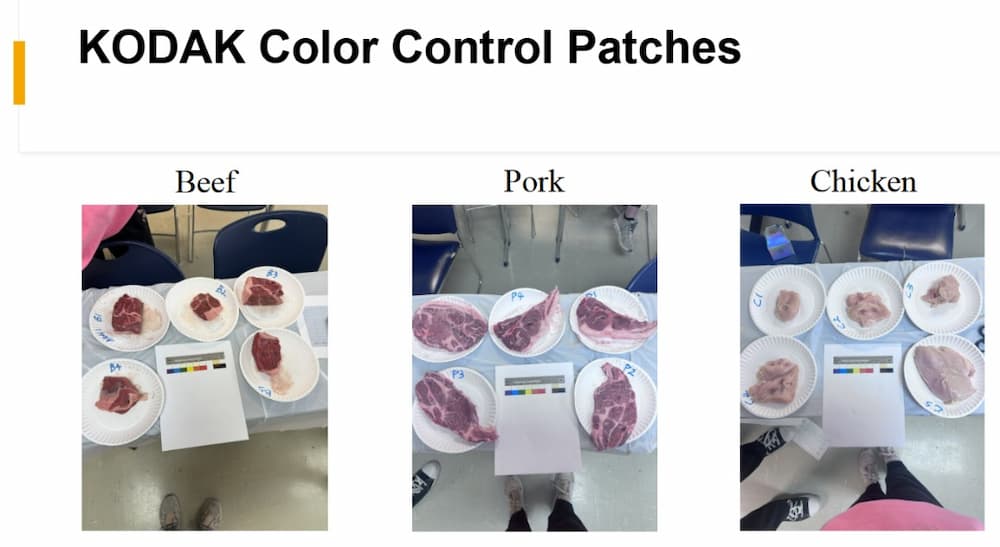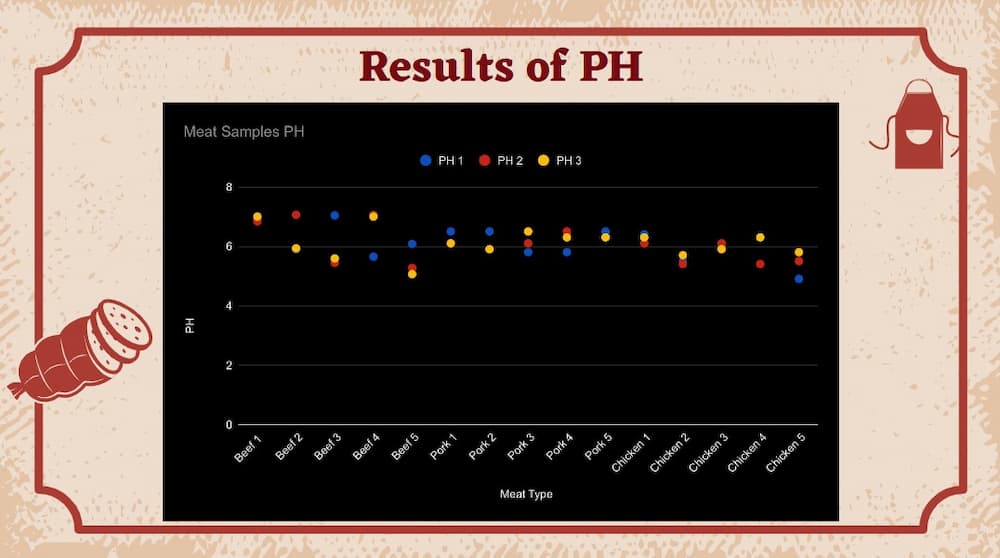Lincoln Agriculture Students Evaluate Meat in Hands-On Learning Experience
Office of Communications and Marketing
Young Hall
820 Chestnut Street
Jefferson City, MO 65101
 Lincoln University agriculture students appraised beef, pork and chicken for an activity in Dr. Victoria Uyanga’s Meat Science 300 class during the spring 2025 semester.
Lincoln University agriculture students appraised beef, pork and chicken for an activity in Dr. Victoria Uyanga’s Meat Science 300 class during the spring 2025 semester.
During the spring 2025 semester, Lincoln University of Missouri (LU) agriculture students learned techniques for appraising processed beef, pork and chicken — knowledge that will come in handy in the lab or at the grocery store.
Dr. Victoria Uyanga, an assistant professor of animal science at LU, teaches Meat Science 300, an introductory course covering muscle-to-meat conversion, meat quality, food safety and more. During the first eight weeks of the semester, students learned about the properties of meat through lectures and other activities.
During the second half of the semester, however, Uyanga wanted to teach students how to apply that knowledge.
“They were very excited we were doing some hands-on things,” Uyanga said. “I feel the students here at Lincoln can always benefit from lab experiences.”
She bought beef, pork and chicken from a grocery store and set her students to the task of evaluating the cuts’ physical and sensory aspects.
The class of about 15 students split into two groups and inspected the meat for temperature, weight, pH and water holding capacity, as well as texture, smell, firmness and marbling.
After the initial investigation, the students ran analyses on the data, created charts, discussed their findings and presented the results.
 After inspecting meats for physical and sensory aspects, students analyzed the data and created charts to display their findings.
After inspecting meats for physical and sensory aspects, students analyzed the data and created charts to display their findings.
Uyanga said she enjoyed watching her students talk about what they discovered and come to their own conclusions. She also found it rewarding to see them connect their findings to coursework they’d done earlier in the semester.
Uyanga hoped the experiential activity would pique students’ interest in research and set the groundwork for future explorations. The opportunity highlighted Uyanga’s desire to promote active learning, making the students a part of the course.
Students gained knowledge on how to conduct experiments and learned valuable general skills, like problem solving and teamwork.
The students enjoyed the experience and named it as the highlight of the course in their end-of-semester evaluations, Uyanga said.
